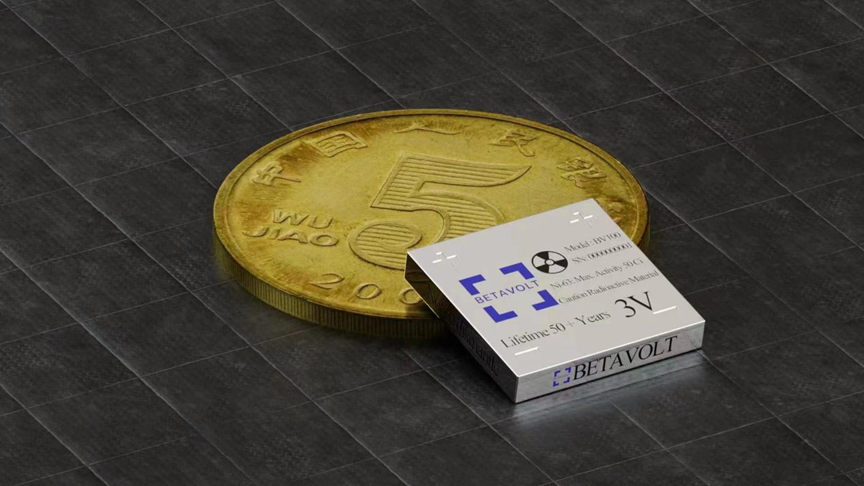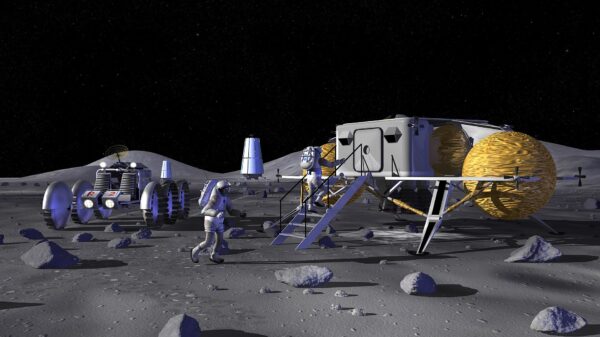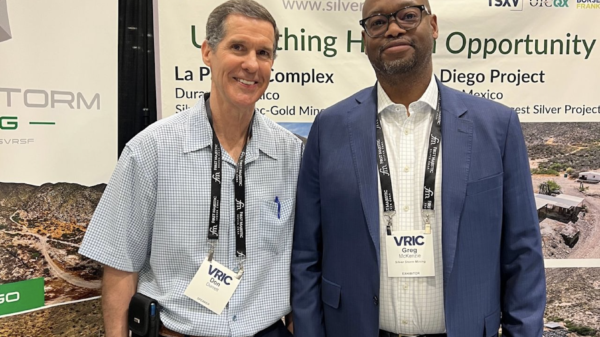The Chinese company Betavolt Technology has developed a battery powered by nuclear energy that will last up to 50 years without recharging.
The Beijing tech developer announced last week that the product had entered the pilot stage and would soon be mass-produced. Betavolt says it will be particularly useful for technologies like drones, medical devices such as pacemakers, AI equipment, high-tech sensors and more.
The company describes it as the world’s first “civilian atomic energy battery.” It uses the radioactive isotope nickel-63, which emits a low amount of radiation, combined with what Betavolt says is China’s first diamond semiconductor material. The isotope produces energy when it decays, which is then converted into electricity with semiconductor converters.
The battery is smaller than a coin and it generates 100 microwatts and 3 volts. Betavolt claims that it won’t catch fire, explode or emit harmful radiation even if it is shot or punctured in another manner. It functions normally no matter what temperature it is in too, Betavolt says.
The company says once mass-produced, the product will be much less expensive to recycle than conventional lithium-ion batteries. Betavolt revealed that it aims to bring a more powerful 1-watt version into the market in 2025 as well.
“This new energy innovation will help China gain a leading edge in the new round of the AI technological revolution,” the company said in a news release.
中国で「永久」電池が開発される
🔋 中国の北京貝塔伏特新能科技有限公司(Betavolt Technology)は、ニッケル63放射性同位体とダイヤモンド半導体を使用した安全で長持ちする電池「BV100」を開発したと発表した。BV100の大きさはコインよりも小さく、50年にわたってエネルギーを供給できるという。… pic.twitter.com/At1GPCgq3s
— Sputnik 日本 (@sputnik_jp) January 12, 2024
Read more: Artificial intelligence chip market projected to grow exponentially, per report
Read more: Rolls-Royce unveils micro nuclear reactor design for future Moon base
Betavolt not the first to develop technology
The Chinese company isn’t the first to develop this type of battery. Researchers from the United Kingdom’s University of Bristol worked on a similar invention in 2016.
“Obvious applications would be in low-power electrical devices where long life of the energy source is needed, such as pacemakers, satellites, high-altitude drones or even spacecraft,” Tom Scott, a professor from the University’s Interface Analysis Centre, said.
Russian researchers from the Moscow Institute of Physics also experimented with batteries powered by nickel-63 decay in 2018. They published their findings in the journal Diamonds and Related Materials.
While everyone seems to be so overwhelmed by 🇨🇳 Betavolt’s “recent nuclear battery breakthrough”, 🇬🇧 University of Bristol first came up with the idea of a nuclear battery using — surprise! — diamond and nickel-63 back in 2016; a Russian team also produced a nuclear battery… pic.twitter.com/Z6MgnqUhHK
— Byron Wan (@Byron_Wan) January 15, 2024
Betavolt did not specify when its product would be commercially available to the public. The company has registered patents for it in Beijing and aims to obtain Patent Cooperation Treaty (PCT) global patents from the World Intellectual Property Organization.
rowan@mugglehead.com












dorian
January 28, 2024 at 7:28 pm
Betavolt did not invent this battery.
U.S. DOE gave it to them